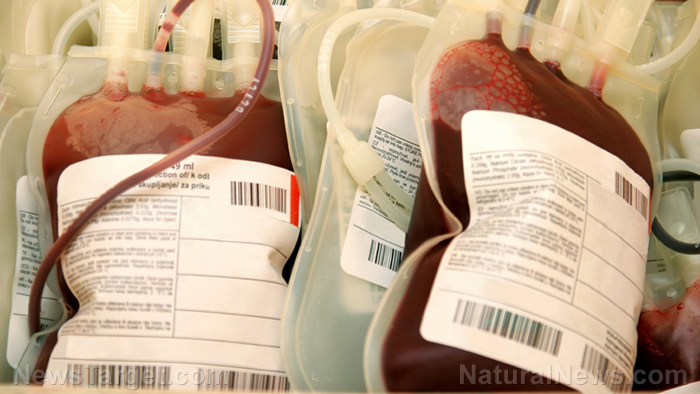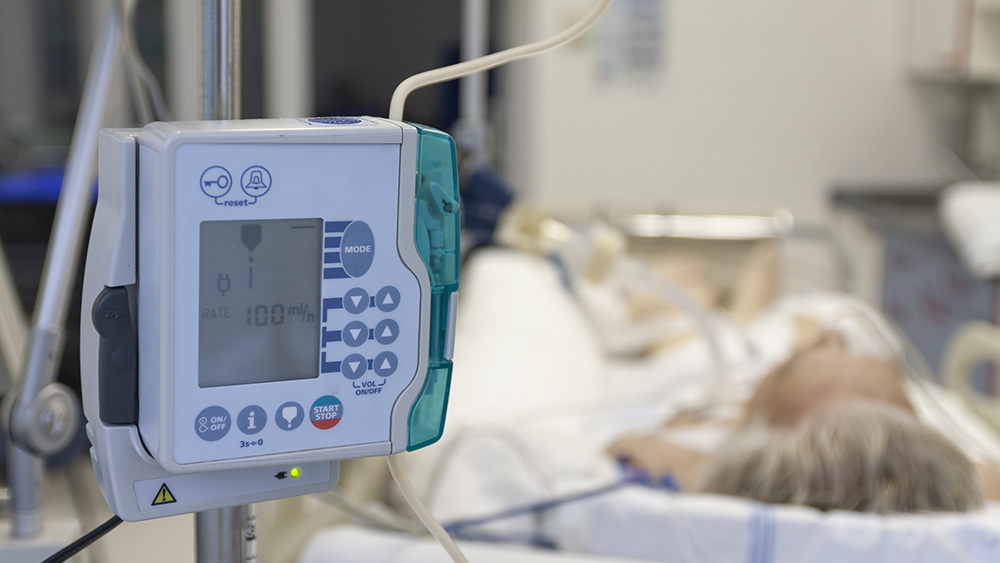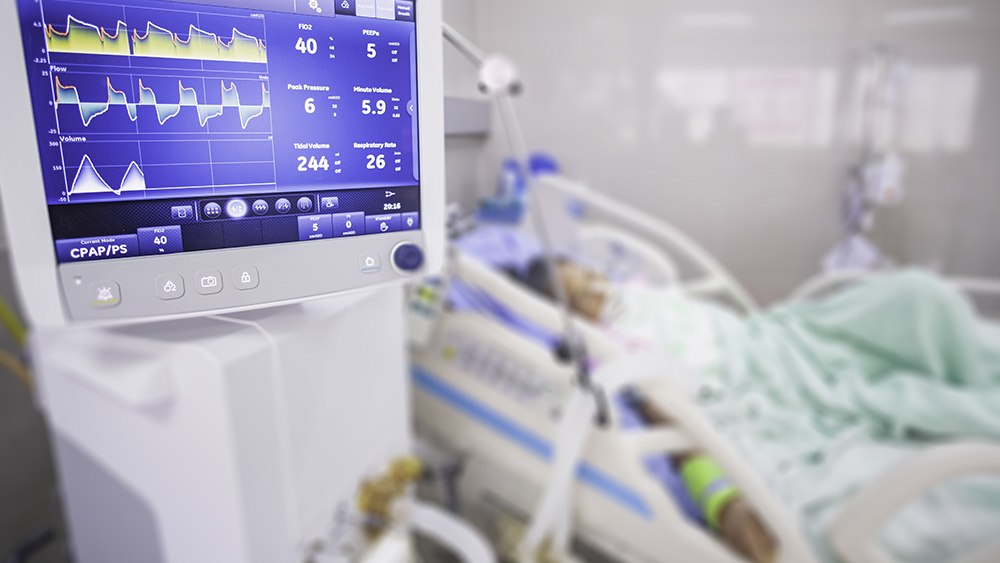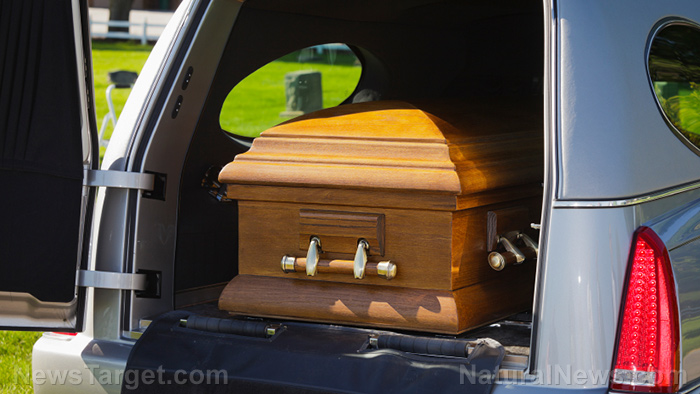PREPARE FOR PAIN: Scotland bans anesthesia due to its “impact on the climate”
03/13/2023 / By Ethan Huff
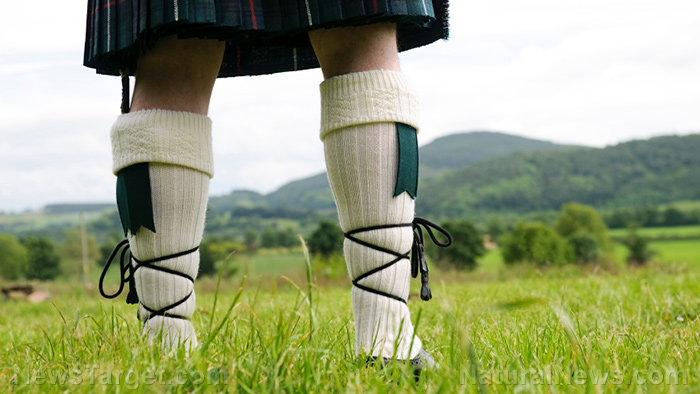
The first country in the world to ban the inhaled anesthetic desflurane is Scotland, which decided that the pain-numbing, sleep-inducing gas is too damaging to the climate to continue allowing for use at hospitals.
According to the United Kingdom’s National Health Service (NHS), desflurane has a global warming “potential” that is 2,500 times greater than carbon dioxide (CO2), another gas that climate fanatics fear because they think it is responsible for melting the polar ice caps.
Already, some hospitals in the U.K. have begun phasing out the anesthetic, which will be gone from England as well by early 2024, except in exceptional circumstances.
The widespread claim, which is unsubstantiated, maintains that ending the use of desflurane in the U.K. will reduce “harmful emissions” by upwards of 40 kilotons of carbon per year, which is enough to power 1,100 homes (supposedly).
(Related: In 2018, a paper was published claiming that anesthesia destroys cognitive performance in adults.)
Everything damages the climate, so it must all be banned
In case you did not know, desflurane and its cousin sevoflurane are manmade hydrofluorocarbons (HFCs) that supposedly contribute to a heating planet. The European Union is scheduled to ban desflurane starting on Jan. 1, 2026, except in exceptional circumstances.
Other potential gases on the chopping block from medical theaters include isoflurane and nitrous oxide.
On an average day, anesthetists can generate up to 500 kilograms (kg) of CO2 “equivalent,” as they are calling it at the Aneurin Bevan University Health Board’s (ABUHB) anesthetic department, which was the first in Wales to stop using desflurane.
The average U.K. citizen is said to use 25 kg of CO2 equivalent in a day, by comparison.
“Desflurane is the main culprit with 2,590 times more global warming potential (GWP) than CO2,” reports Newspunch. “A 240 ml bottle of desflurane, when vaporised, will produce the equivalent of 886 kg of carbon dioxide, according to the non-profit Centre for Sustainable Healthcare.”
Sevoflurane, conversely, has a GWP of just 130, while nitrous oxide warms the atmosphere almost 300 times more than CO2 and stays there for more than 100 years.
All this climate fearmongering hearkens back to the 1990s when the government and media were creating much ado about nothing concerning hairsprays and refrigerators, which we were all told were burning holes in the earth’s ozone layer.
This was nonsense, of course, but it brought about the globalists’ desired outcome which was bans on some of those items as well.
In the comments, someone speculated that nuclear and atomic weapons testing was more than likely the true culprit in the ozone depletion hysteria of the ’90s, assuming any of it had any merit.
“I’ve always suspected it was them and testing nuclear and atomic weapons in the atmosphere that caused the problems they had to make up scapegoats for,” this person wrote. “That and them letting rockets come back covered in who knows what stuff that they wouldn’t even know to look for.”
“I reckon they blew holes in the ozone themselves just to see what would happen. And the new gases in fridges and air conditions stink – they never get hot or cold, not like our good old ones back in the ’60s and ’70s did.”
“You could make your house super-hot in about 20 minutes and then turn the air off, or icy cold, and then not be using any electricity for ages. Not now. Turn it off and the rooms freezing again in no time. Useless. Wastes tons of electricity, makes them really rich. Of course the old oil heaters were the best of the lot so they outlawed them.”
The latest climate lunacy news can be found at Climate.news.
Sources for this article include:
Submit a correction >>
Tagged Under:
anesthesia, ban, banned, climate, climate change, climate hysteria, desflurane, fear mongering, global warming, green tyranny, hospital homicide, medicine, Scotland
This article may contain statements that reflect the opinion of the author
RECENT NEWS & ARTICLES
HospitalHomicide.com is a fact-based public education website published by HospitalHomicide.com Features, LLC.
All content copyright © 2021 by HospitalHomicide.com Features, LLC.
Contact Us with Tips or Corrections
All trademarks, registered trademarks and servicemarks mentioned on this site are the property of their respective owners.











